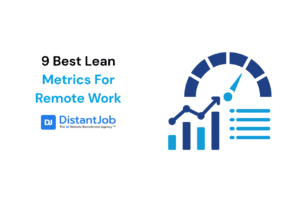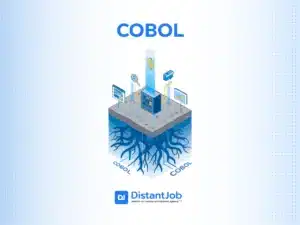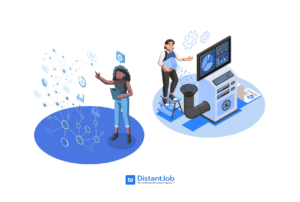You might have heard already that Kubernetes is deprecating Docker. Reading only that, I was shocked, Docker and Kubernetes have become increasingly popular with companies and has been a requirement for many DevOps and backend development roles as of late.
What is Going on With Docker and Kubernetes?
According to the Kubernetes blog, the summarized version is “Docker as an underlying runtime is being deprecated in favor of runtimes that use the Container Runtime Interface(CRI) created for Kubernetes. Docker-produced images will continue to work in your cluster with all runtimes, as they always have.”.
I do not presume to know more about this than the people working directly with Kubernetes; I’m more worried about what this means for your IT career? What choices should you make now so that in 3 years or more, you are at the forefront of modern technologies and continue to grow in the industry? And, what should you look out for if you’re hiring for your company?
The quick answer is: If you’ve already been working with Docker for containers in your company along with Kubernetes, your team already has a strong understanding of containers, so brushing up on Containerd or CRI-O will require a low learning curve.
If you’re hiring for your team, experience with Kubernetes and Docker will still be valuable, and you need to consider that even the most experienced DevOps professionals will need to update, possibly to Containerd since it’s open source.
Your experience with Docker and Kubernetes will still be essential and transferable into skills used with Containerd or CRI-O. If you’re working with DevOps, I would say that it will matter more than if you’re working on backend development, as Docker itself will continue to exist and be very useful in the industry. Even if Docker loses some popularity among tech teams that use Kubernetes in the future, your skills will quickly transfer.
Docker will still be beneficial for development, and according to the Kubernetes blog, “The Docker installation you’re using in development is unrelated to the Docker runtime inside your Kubernetes cluster.”.
If you haven’t been using Kubernetes, you have nothing to worry about, and if you have, then expect some changes. Still, constant change is part of the occupational hazards of working in technology, isn’t it?
“The wise adapt themselves to circumstances, as water molds itself to the pitcher.”
Chinese Proverb
But Why is Docker Being Deprecated on Kubernetes?
The main reason for this decision is that Docker uses a UI that is unnecessary for Kubernetes and causes possible security risks to Kubernetes.
The Kubernetes team has weighed in the pros and cons and has found that supporting Docker further is not in the best interest of the Kubernetes environment.
Should you Worry About the Future of Your Company?
No, there’s no need to panic. 2020 has been crazy, but still, it’s not the end of the world. Docker isn’t dead. It has plenty of uses. The only thing is that you can’t use Docker as your container runtime in Kubernetes as of future releases. You could keep in the old version and keep working with both Docker and Kubernetes. However, this is not a good practice and is often resulting in your codebase getting old, as it cannot update to modern standards and will not get support from the Kubernetes community, so we advise against that.
If you want to update to the next version, you will need to switch to Containerd or CRI-O, and the DevOps professionals we have approached on the matter think that this won’t be that hard to do. I suggest you talk to your development team and let them have some time to think about what that means for your codebase specifically; they will be able to tell you what that means for your product and give you the next steps.
Trust your team; if you can’t trust them, get a team you can trust, this is why you hire professionals. At DistantJob, we can help you build your dream team in no time. We have helped companies hire talented and professional remote developers in less than two weeks. Let us help you scale your IT team.
What Does Kubernetes Deprecating Docker Mean for Your Professional Career?
It means that if you had been working with Containerd or CRI-O, your profile might have just gotten more appealing to companies, as you could help them with new projects or updating their current ones.
If you have been working with Kubernetes and Docker, your best bet is to get yourself acquainted with Containerd or CRI-O and add them to your skills on LinkedIn, so companies can know you have the skills.
And if your team is not yet aware of this change, prepare a small presentation on what that means for your company, your manager will appreciate it, and it will probably count for your next salary review. Most companies value proactivity.





